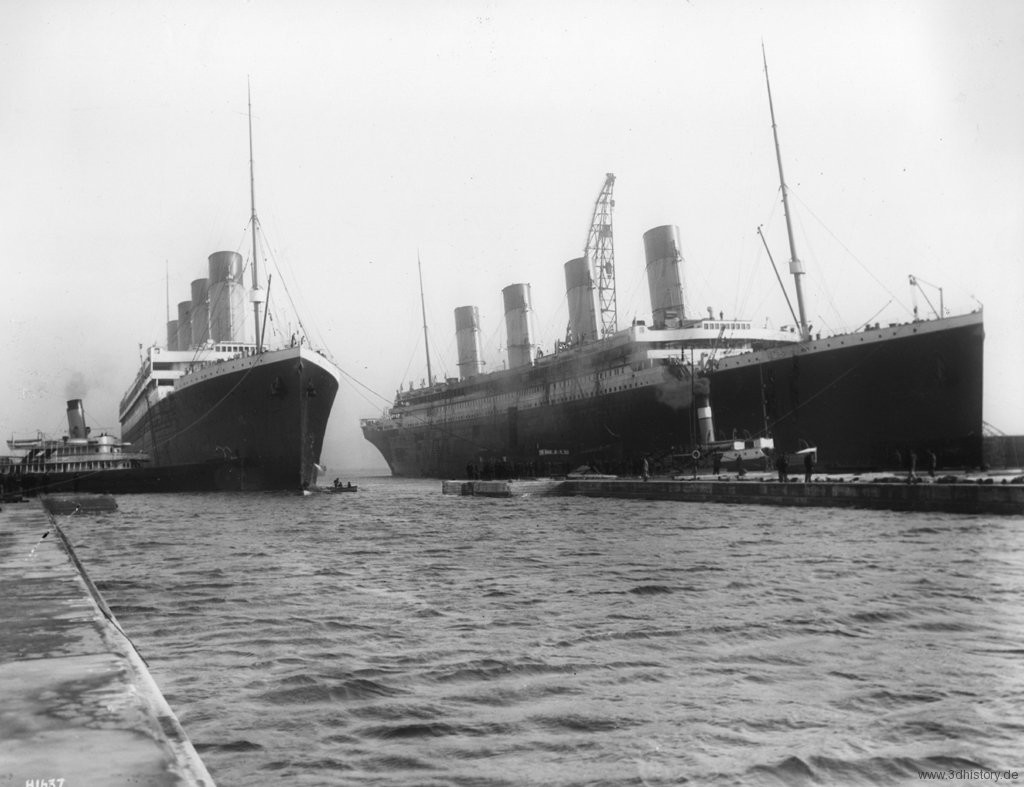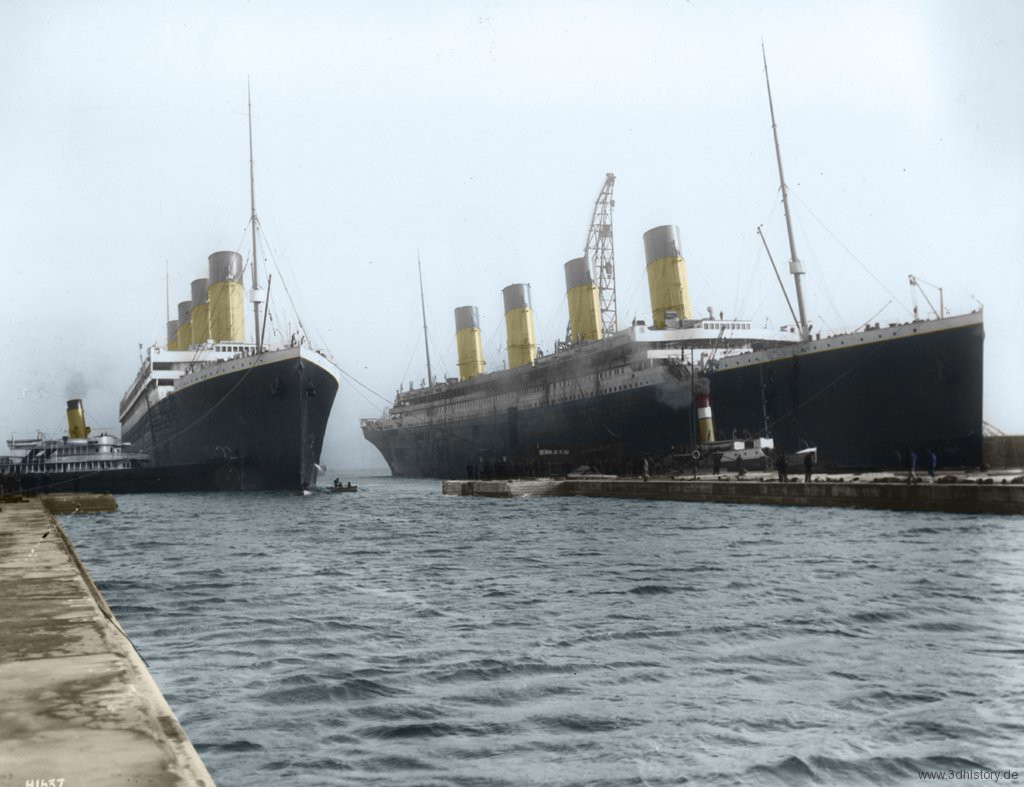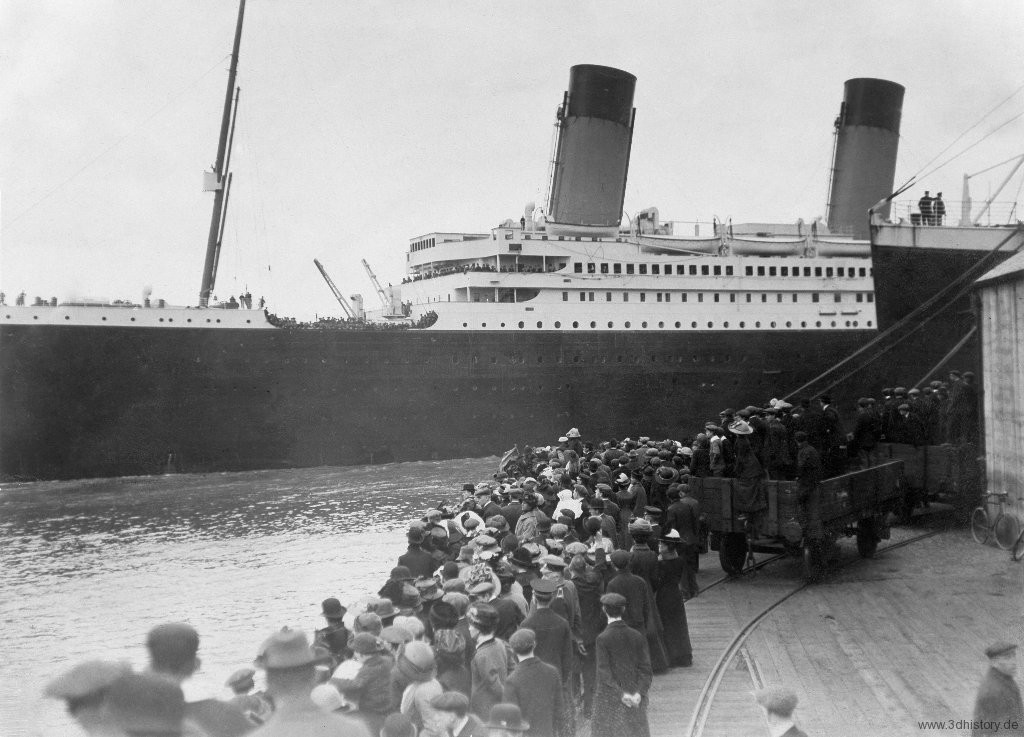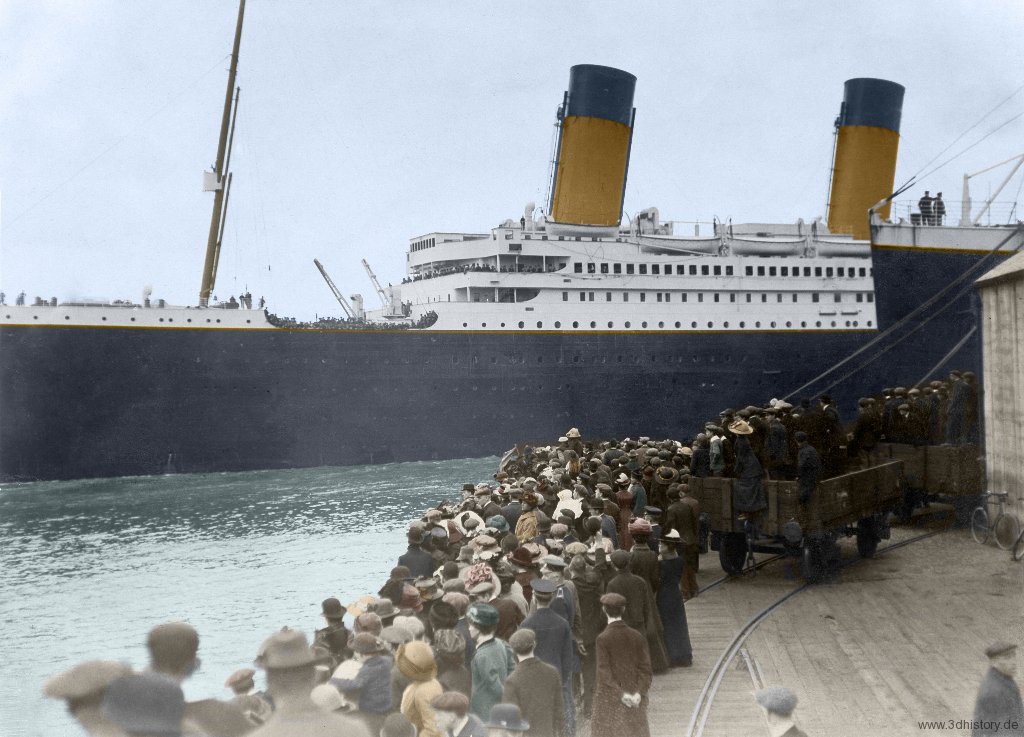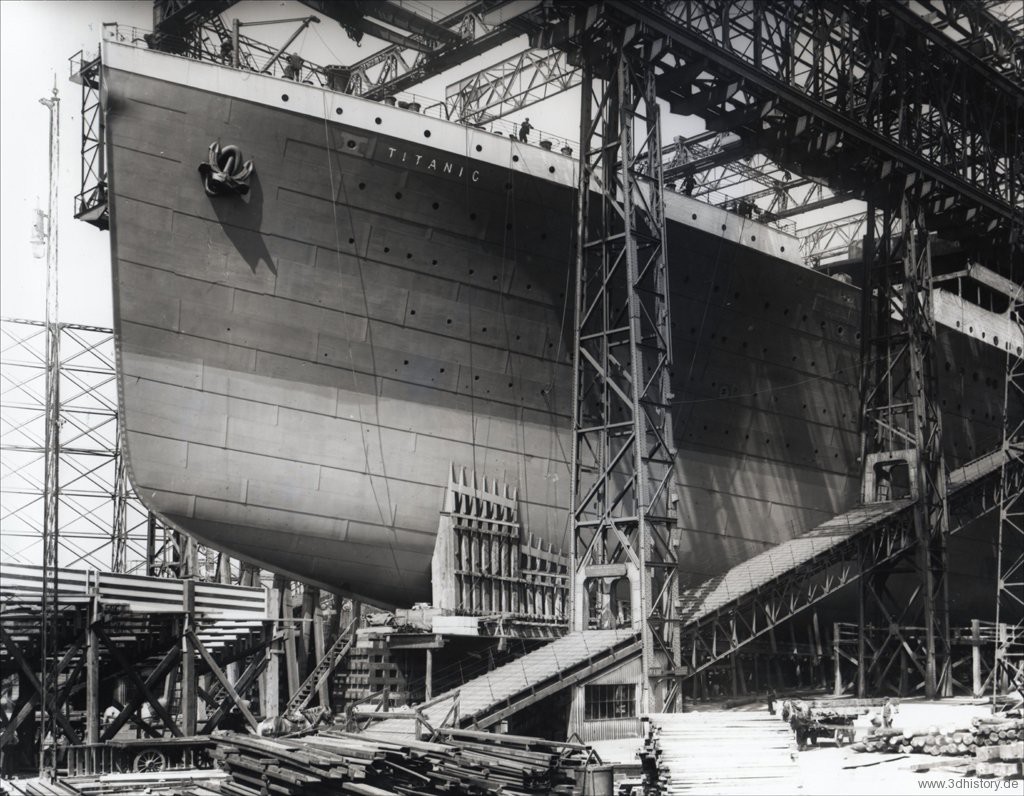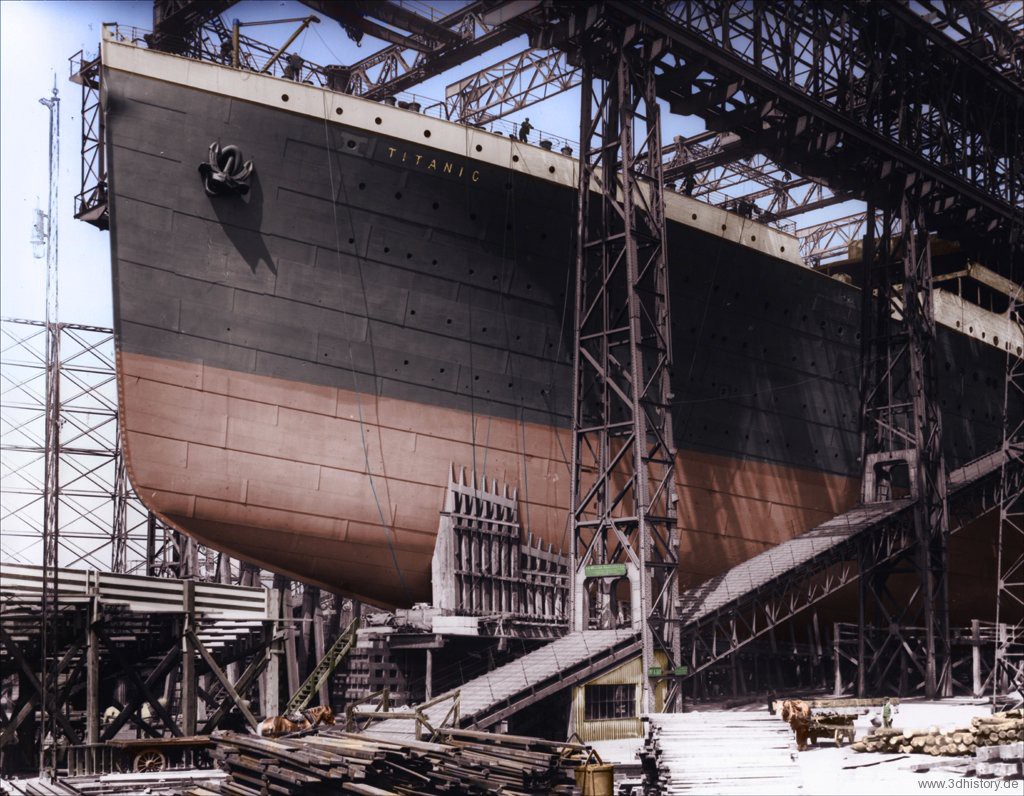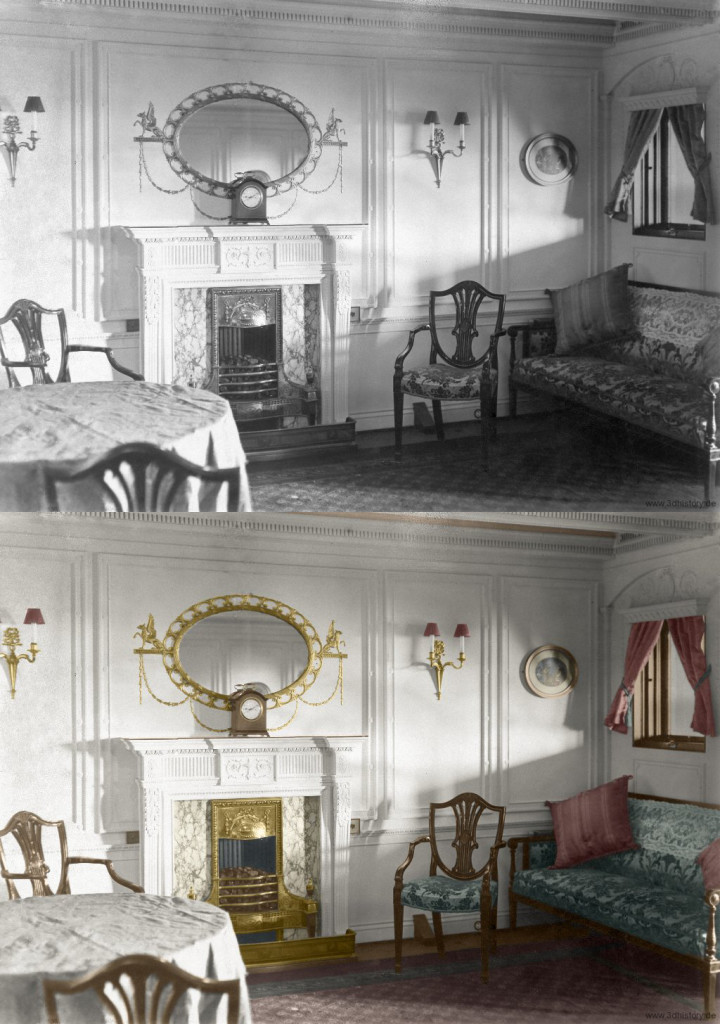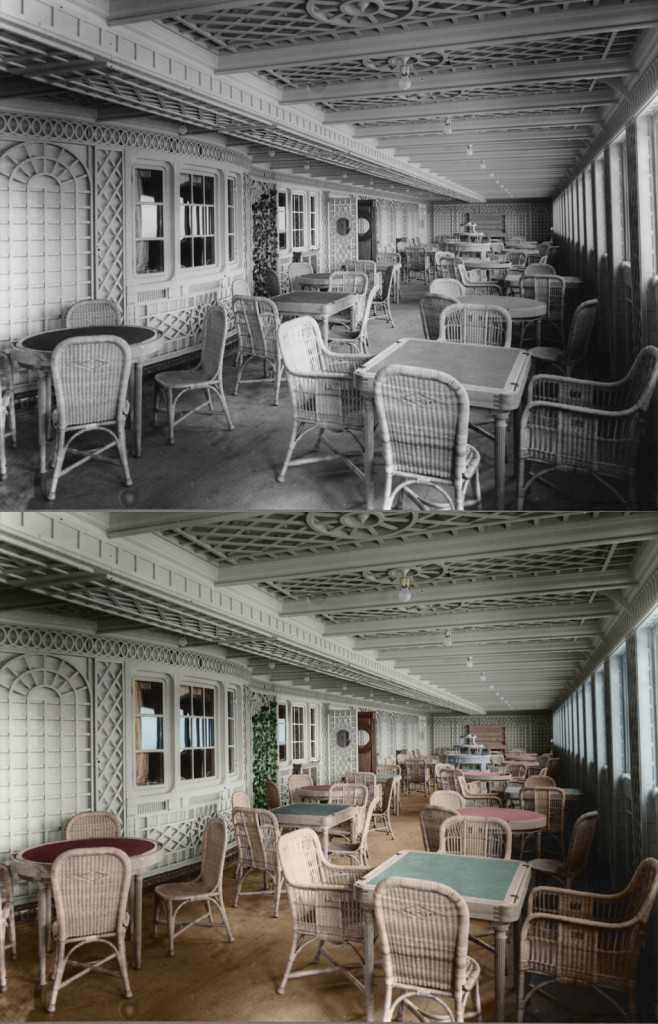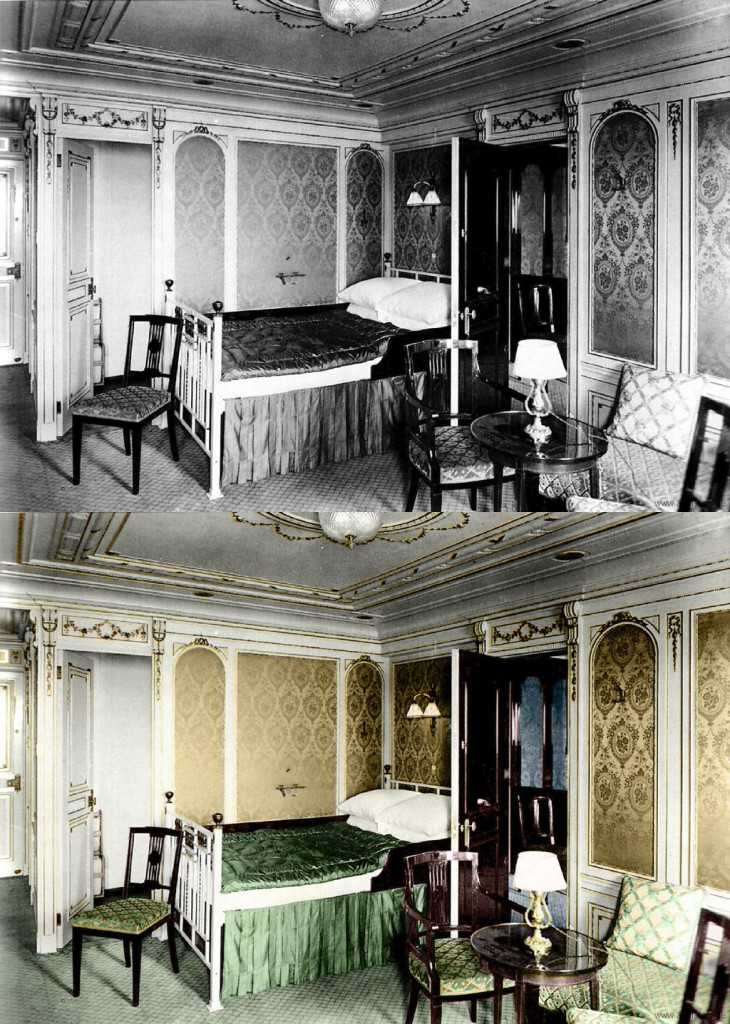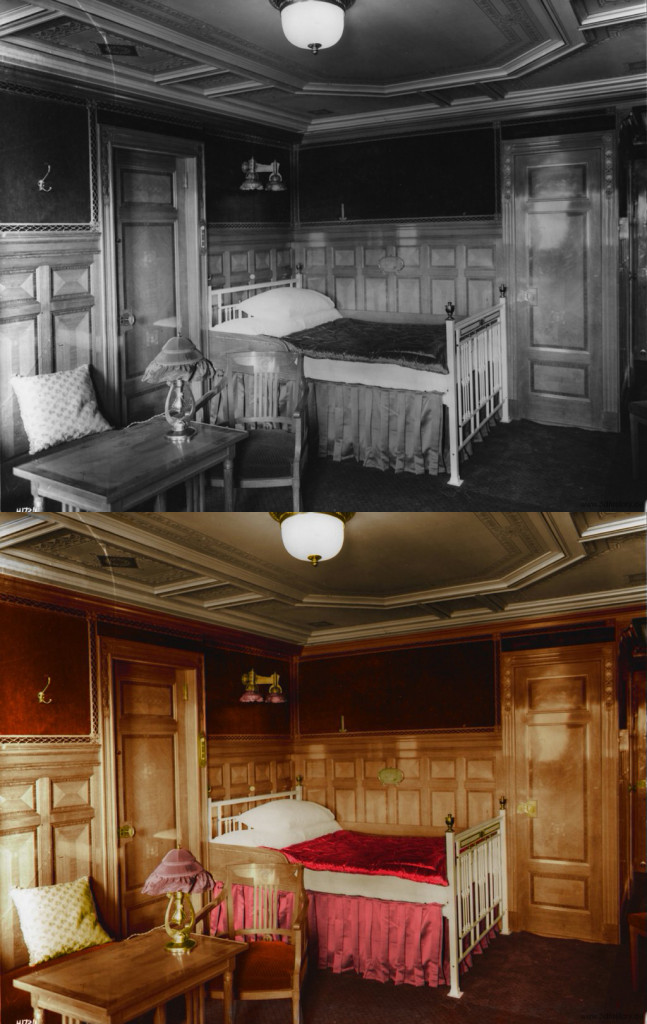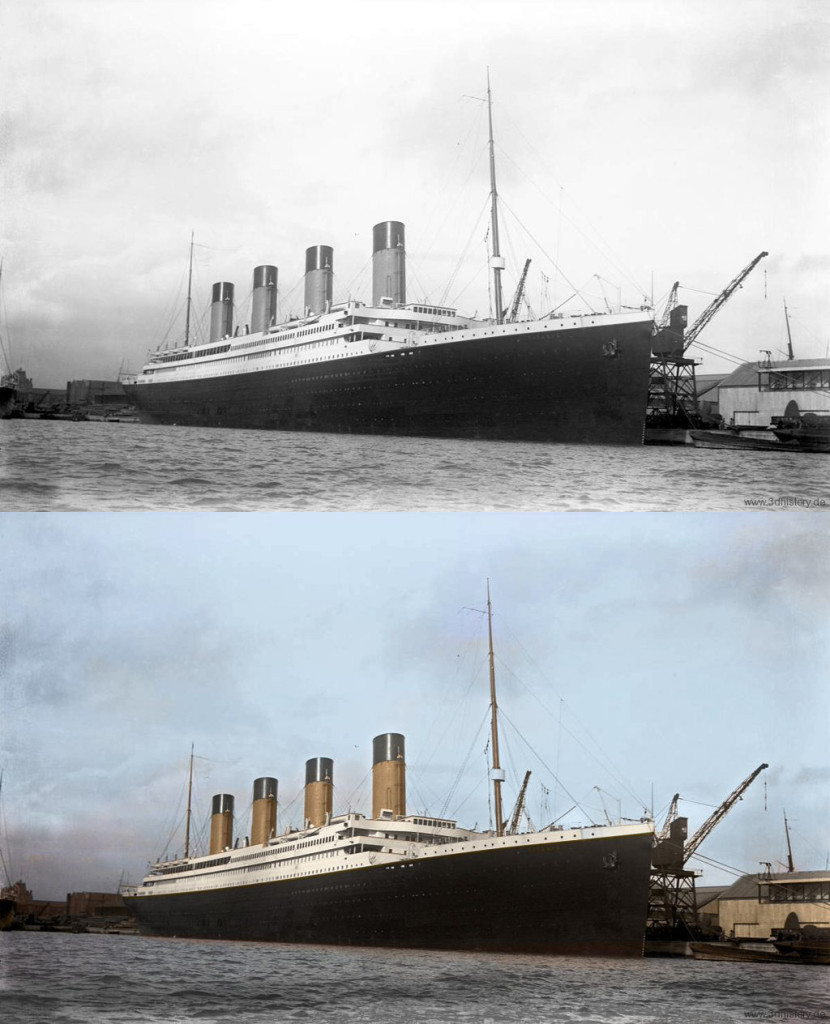To this day, people find the unfortunate tale of RMS Titanic, fascinating, sad and mesmerizing. One of those people is Thomas Schmid, an artist who decided to show his fascination for the doomed liner by giving it a new, colorful perspective.
Titanic in Color is a new project ( still in progress), that allow us to see the monochromatic photos of the luxurious liner in vivid colors.
Image Credit: 3d History
Image Credit: 3d History
The idea is to show the Titanic in color, outside and inside. The colors are carefully chosen according the builders materials and paint instructions. This project is still – work in progress – !
Beside the colorization and some dust or scratch removal the original black & white photographs are left untouched. We have not added anything like clouds or other items to make the photo look more dramatic or spectacular. writes Shcmid on his website.
Image Credit: 3d History
“My interest about the Titanic began in my early childhood. I believe I build the first 3D model of Titanic at the age of 6 out of Lego bricks. Ever since I was fascinated of the ship and her tragedy. Approaching the 100th commemoration of her sinking requests about color footage came in. Of course there was none! But thanks to the computer we could help out. ”
Image Credit: 3d History
RMS Titanic was a British passenger liner that sank in the North Atlantic Ocean in the early morning of 15 April 1912 after colliding with an iceberg during her maiden voyage from Southampton, UK, to New York City, US. The sinking resulted in the loss of more than 1,500 passengers and crew, making it one of the deadliest commercial peacetime maritime disasters in modern history. The RMS Titanic, the largest ship afloat at the time it entered service, was the second of three Olympic class ocean liners operated by the White Star Line, and was built by the Harland and Wolff shipyard in Belfast with Thomas Andrews as her naval architect. Andrews was among those lost in the sinking. On her maiden voyage, she carried 2,224 passengers and crew.
Image Credit: 3d History
The disaster was greeted with worldwide shock and outrage at the huge loss of life and the regulatory and operational failures that had led to it. Public inquiries in Britain and the United States led to major improvements in maritime safety. One of their most important legacies was the establishment in 1914 of the International Convention for the Safety of Life at Sea (SOLAS), which still governs maritime safety today. Additionally, several new wireless regulations were passed around the world in an effort to learn from the many missteps in wireless communications—which could have saved many more passengers.
Image Credit: 3d History
The wreck of Titanic remains on the seabed, split in two and gradually disintegrating at a depth of 12,415 feet (3,784 m). Since her discovery in 1985, thousands of artefacts have been recovered and put on display at museums around the world.Titanic has become one of the most famous ships in history, her memory kept alive by numerous books, folk songs, films, exhibits, and memorials.
Image Credit: 3d History
Image Credit: 3d History
Image Credit: 3d History
See more of his work here.

